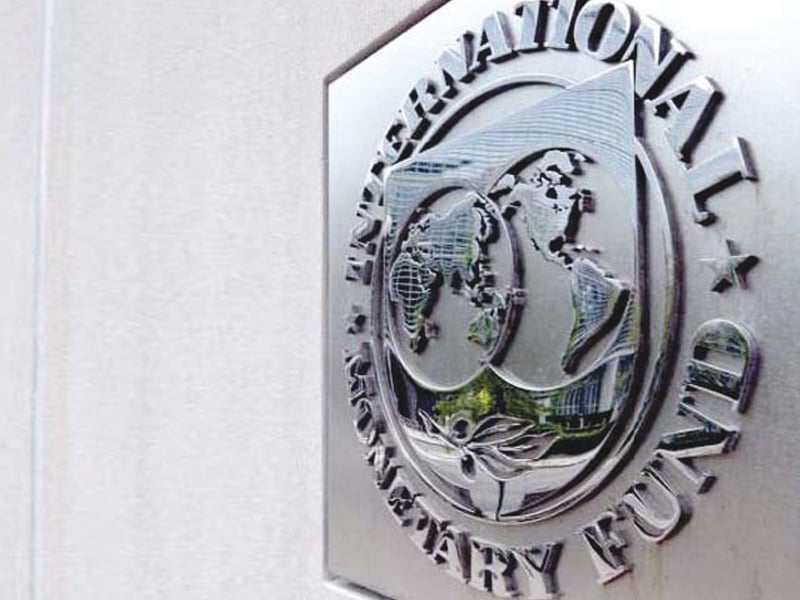
ISLAMABAD:
As the International Monetary Fund’s (IMF) policy prescription to economic ills of the country is expected to shave 2% off from the growth rate this year, an IMF delegation is arriving in Islamabad over the weekend to seek political assurances at the top level for implementation of the agreed set of conditions.
The IMF delegation, headed by Director of Middle East and Central Asia department Masood Ahmed, and IMF’s Washington-based Mission Chief for Pakistan Jeffery Franks, will arrive on Sunday on a week-long visit, according to sources in the Ministry of Finance.
The delegation is coming following the approval of a $6.7 billion bailout package by the IMF Executive Board on Wednesday. The loan will be disbursed over a programme period of three years. The IMF has decided to give $547 million upfront, much lower than what Pakistan was hoping for, and has likely linked the release of the remaining amount to successful completion of quarterly reviews, which carry many politically unpopular conditions.
The conditions include privatising or winding up some state-owned entities and raising capital through nine commercial banks of the country that are facing problems.
The sources said some of the Executive Directors of the Board had raised questions over Islamabad’s ability to implement promised reforms, as it has never delivered in the past. The delegation will convey the Executive Board’s reservations to the country’s political leadership and economic managers and seek their firm commitments, they added.
The delegation will meet the country’s political leadership in addition to holding meetings with other stakeholders in other metropolitan cities, they added.
A senior finance ministry official confirmed that the IMF delegation was coming to Pakistan but said the purpose was to hold introductory meetings.
The IMF has said that the nation’s economy will grow only 2.5% this year, even less than the growth rate of the previous year. The projected growth rate by the IMF is 2% less than the Gross Domestic Product (GDP) growth target of 4.5% set by the government for the current fiscal year.
The slowing growth rate will be the result of a combination of belt tightening needed to ensure fiscal discipline and tightening monetary policies, which the IMF has asked for to build dwindling foreign currency reserves and target inflation, according to independent economists.
On the fiscal side, the government has promised to reduce budget deficit by 2% of GDP or Rs520 billion this year. As a contingency measure, the government was reducing expenditure allocations by Rs130 billion in the first nine months of the year compared to the budget to create a reserve against any fiscal slippage, according to Memorandum of Economic and Financial Policies (MEFP).
The government has also assured that it will take other measures needed to compliance with budget deficit reduction target. The government will also impose a gas levy to generate an additional Rs104 billion this year besides taking measures on sales tax and federal excise duties side. All these measures will hurt economic growth in the first year.
On the monetary side, Pakistan has also assured the IMF that monetary and exchange rate polices will focus on rebuilding foreign exchange reserves and maintaining price stability, according to the MEFP. The State Bank of Pakistan (SBP) will also stop lending to the government.
The SBP will also submit the banking sector’s surveillance and monitoring report to the IMF during the first review meeting, to assess risks in the financial sector. The IMF has asked Pakistan to amend the charter of the SBP and narrow its role to only targeting inflation.
The IMF has also asked Pakistan to prepare a plan to achieve compliance by all banks to meet minimum capital requirements. As many as nine banks have been indentified that need recapitalisation, consolidation or liquidation, the MEFP disclosed. These banks will have to make a decision before the end of this calendar year.
Further, three private banks that failed to maintain minimum capital adequacy ratio requirement have been asked to raise capital. By December 2014, these three banks will have to provide an approved capital plan. One of these banks is already negotiating a merger with a foreign bank and another is lining up a foreign investor.
Published in The Express Tribune, September 6th, 2013.
Like Business on Facebook, follow @TribuneBiz on Twitter to stay informed and join in the conversation.
COMMENTS (3)
Comments are moderated and generally will be posted if they are on-topic and not abusive.
For more information, please see our Comments FAQ























































@Zeeshan:
You needed foreign exchange. China is unwilling to give a oan but vendor financing. Yuo already have that. Saudi Arabai refused to give you forex. I do not know if you undretsand that IMF is a lender of the last resort. People only go to IMF when no other sources are available.
The forex reserved with SBP were lower than 5 billion. Of those around 2,7 billion were forward swaps. In essence the liquidity wit SBP was around 2.1 bilion which is less than one month's imports for Pakistan.
i think we should use alternate sources instead of IMF we can go toward china and saudi arbia as well as make such policies which prove helpful for stabilizing the country .
IMF joins the growing list of countries, organizations, institutions, academicians, op ed writers etc asking Pakistan to "Do More".